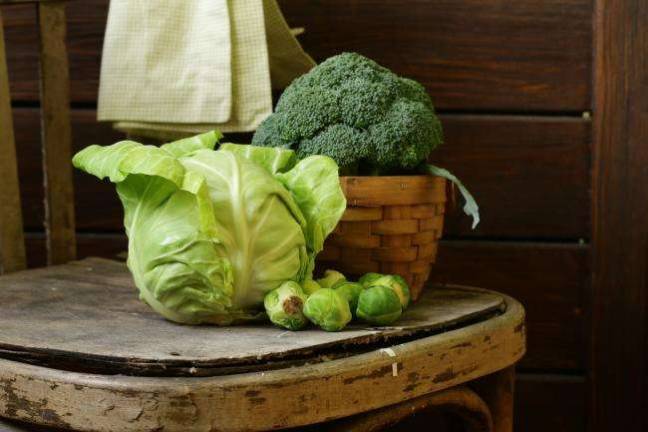Soy, cruciferous vegetables ease side effects of breast cancer treatment

Consuming cruciferous vegetables, such as the cabbage, Brussels sprouts, and broccoli, as well as soy foods may be associated with a reduction in common side effects of breast cancer treatment in breast cancer survivors.
A team of scientists led by Georgetown Lombardi Comprehensive Cancer Center found that higher intake of cruciferous vegetables and soy foods were associated with fewer reports of menopausal symptoms. Higher soy intake was also associated with less reported fatigue.
Researchers say breast cancer survivors often experience side effects from cancer treatments that can persist months or years after completion of treatment. For example, because many treatments designed to prevent breast cancer recurrence inhibit the body’s production or use of estrogen, the hormone that can fuel breast cancer growth, breast cancer patients often experience hot flashes and night sweats, among other side effects.
“These symptoms can adversely impact survivors’ quality of life and can lead them to stopping ongoing treatments,” said lead author Sarah Oppeneer Nomura, PhD, of Georgetown Lombardi. "Understanding the role of lifestyle factors is important because diet can serve as a modifiable target for possibly reducing symptoms among breast cancer survivors.”
Whether the reduction in symptoms accounts for longtime use of soy and cruciferous vegetables needs further investigation, says the study’s senior author, Judy Huei-yu Wang, PhD, of Georgetown Lombardi’s Cancer Prevention and Control Program.
Results obtained in preclinical studies in animals show that biologically active compounds present in both soy and cruciferous vegetables cause breast cancer cells to grow but have opposite effects in animals that consume these compounds well before cancer is diagnosed and continue consuming them during and after cancer treatments.
Until more research is conducted, breast cancer patients should not suddenly start eating soy if they have not consumed it before, says Leena Hilakivi-Clarke, PhD, a professor of oncology at Georgetown Lombardi and a co-author of the study.
Researchers also found suggestive associations with lower reporting of other symptoms, including joint problems, hair thinning, and memory loss in women who consumed more soy foods, but these associations did not reach statistical significance.
Phytochemicals, or bioactive food components, such as isoflavones in soy foods and glucosinolates in cruciferous vegetables may be the source of the benefit, researchers say. Isoflavones bind to estrogen receptors and exert weak estrogenic effects, among other effects. Glucosinolates in cruciferous vegetables influence levels of metabolizing enzymes that can modulate inflammation and levels of estrogen, possibly attenuating treatment-related symptoms.
Georgetown University Medical Center: gumc.georgetown.edu